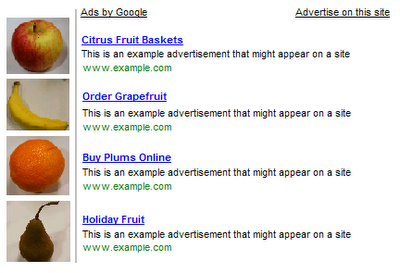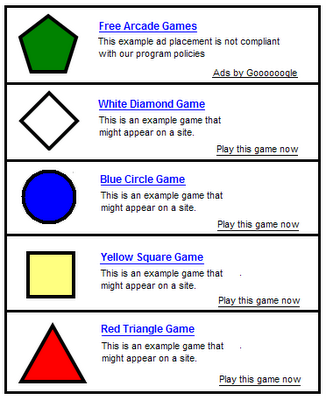Can I place small images next to my Google ads?
We ask that publishers not line up images and ads in a way that suggests a relationship between the images and the ads. If your visitors believe that the images and the ads are directly associated, or that the advertiser is offering the exact item found in the neighboring image, they may click the ad expecting to find something that isn't actually being offered. That's not a good experience for users or advertisers.
Publishers should also be careful to avoid similar implementations that people could find misleading. For instance, if your site contains a directory of Flash games, you should not format the ads to mimic the game descriptions.
What if I place a space or a line between my images and my ads? Would that work?
No. If the ads and the images appear to be associated, inserting a small space or a line between the images and ads will not make the implementation compliant.
Does this mean I can't place ads on pages with images?
You can definitely place Google ads on pages containing images -- just make sure that the ads and images are not arranged in a way that could easily mislead or confuse your visitors. For example, if you run a stock photography site with a catalog of thumbnail images, don't line the ads up with the thumbnails in a way that could be misleading. Consider using a full border around your ads or changing your ad colors, for example.
What do unacceptable implementations look like?
Here are some examples that wouldn't comply with our policies.


For more articles about different markets please visit my articles and links directory.
http://theadsensepublisher.com/
Thanks for yours time have a good day :-)



